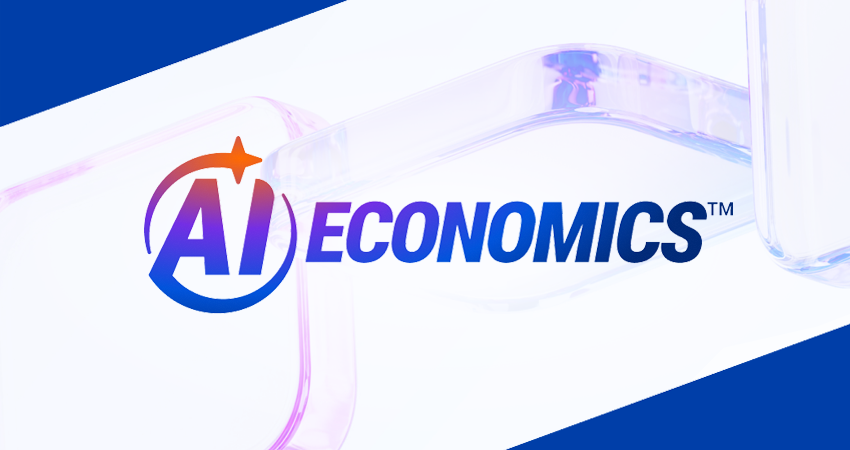Stay ahead of the curve with the latest TSIA news
Get the news you need and stay ahead of the curve on technology and services industry trends—all in one place.
TSIA Announcements

TSIA Introduces AI Economics
The Technology & Services Industry Association (TSIA) introduced AI Economics at the TSIA World ENVISION 2025, reframing the industry’s defining question: Is AI the end of tech services, or the era of tech services?
2025
Announcement
This is some text inside of a div block.

TSIA Launches TSIA Intelligence: AI Built for Technology Services
Technology & Services Industry Association (TSIA), the leading source of trusted insights for the technology and services industry, proudly announces the official launch of TSIA Intelligence, a game-changing, AI-powered research experience. Set to debut at TSIA World INTERACT on April 29th, this launch marks a pivotal moment in how TSIA members access, engage with, and extract value from the organization's vast library of exclusive research.
2025
Announcement
This is some text inside of a div block.

TSIA Launches Its Second Set of Research Journeys for 2024
TSIA, the leading research and advisory firm for technology and service organizations, today announced their latest round of Research Journeys, tackling the toughest business challenges facing the industry.
2024
Announcement
This is some text inside of a div block.

TSIA Announces Winners of the 2024 Star Awards
TSIA (Technology & Services Industry Association), the leading research and advisory firm for technology service organizations, is excited to announce the finalists and recipients of the 2024 Star Awards.
2024
Announcement
This is some text inside of a div block.

TSIA Adds Three Leaders to Industry Influencing Executive Advisory Board
TSIA (Technology & Services Industry Association), the leading research and advisory firm for technology and service organizations, recently named three new members to TSIA's Executive...
2024
Announcement
This is some text inside of a div block.

TSIA Names Smartsheet's CCO, Michael Hubbard, to Executive Advisory Board
TSIA (Technology & Services Industry Association), the leading research and advisory firm for technology and service organizations, recently named Michael Hubbard as the newest member of TSIA's Executive Advisory...
2024
Announcement
This is some text inside of a div block.
Featured in


The Rise of AI: Reshaping the Tech Industry and Redefining Revenue Growth
The tech industry is experiencing a significant transformation fueled by the progress and adoption of Artificial Intelligence (AI). Traditionally, companies have relied on increasing headcount to fuel revenue growth. However, the emergence of AI is disrupting this paradigm, offering a powerful alternative for enhancing efficiency, optimizing processes, and unlocking new revenue streams.
2025
Byline
This is some text inside of a div block.
This is some text inside of a div block.


15 Customer Experience Predictions for 2025
This is the sixth year that I’ve compiled a set of customer experience-related predictions for the coming year. For each article, I gather together a set of predictions that have been sent to me over the preceding month. Last year, I received 263 different predictions from 140 different people. This year, 208 different leaders in the service and experience space submitted 396 different predictions, which represents a nearly 50% growth in both the number of people who have participated in the process and the number of predictions they have submitted compared to last year’s predictions.
2024
Article
This is some text inside of a div block.
This is some text inside of a div block.


Your Revenue Is No Longer Linked to the Size of Your Sales Organization
It’s time for technology companies to decouple the belief that increased revenue is linked to greater headcount.Artificial Intelligence (AI) has become the driving force behind automating tasks, elevating employee value, and propelling revenue growth in this industry. To achieve this, companies are embracing an AI-driven path of evolving efficiencies and seeking innovative strategies to augment revenue streams, without incurring substantial expenses.
2024
Byline
This is some text inside of a div block.
This is some text inside of a div block.


TSIA Recognizes Support Staff Excellence Certification for CSC, Salesforce, and Brightcove in 2024
TSIA, the leading research and advisory firm for technology and service organizations, announced today the technology companies that have achieved Level I and Level II Support Staff Excellence (SSE) for 2024—as well as multiple recipients of the Certified Support Staff Excellence Center Outstanding Achievement Award.The SSE certification, offered by TSIA and delivered by Korn Ferry, is a powerful staff development program that delivers a robust customer service experience by developing the most essential service delivery resource a company has: its people. This year, three companies have achieved SSE certifications. Those companies are:CSCBrightcove, Inc. Salesforce
2024
Announcement
This is some text inside of a div block.
This is some text inside of a div block.


Every Business’s Goal: Cut Costs And Increase Revenue
Growth over profitability has been the mantra of the tech industry for more than 20 years, but times are changing. The investment dollars that once motivated companies to follow this path are now being directed elsewhere. Part of this reality stems from the economy, but it’s also due to investment dollars being earmarked for AI development.
2024
Byline
This is some text inside of a div block.
This is some text inside of a div block.


The Launch of B2B’s Digital-First Customer Lifecycle
If you work in the tech industry, you’ve likely been considering how AI will reshape the market. While these changes are still in the early stages, their widespread and profound impact is inevitable — and industry experts are delving into this very question. While we’re witnessing numerous moving pieces, one colossal shift is underway: AI is evolving and restructuring the B2B customer lifecycle.
2024
Byline
This is some text inside of a div block.
This is some text inside of a div block.








